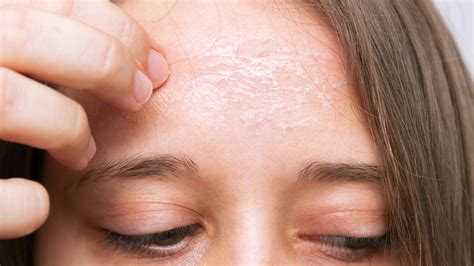Managing and Treating Dry Skin
Dry Skin FAQ
Is dry skin a medical term?
Dry skin is very common. The medical term for dry skin is xeroderma. You can treat dry skin at home by using moisturizers. Talk to a dermatologist if you have dry skin that doesn’t go away or keeps returning. What is dry skin? Dry skin is skin that doesn’t have enough moisture in it to keep it feeling soft.
Why is my skin so dry?
Hairdressers, nurses, housekeepers, construction workers, cooks, florists, and metal workers often develop excessively dry skin. Low outdoor temperature: When outdoor temperatures fall, the air holds less moisture. Research shows that this can lead to excessively dry skin. Vitamin or mineral deficiency: Skin requires nutrients to keep it healthy.
What does dry skin look like?
Dry skin makes the skin look and feel rough, itchy, flaky or scaly. The location where these dry patches form vary from person to person. It's a common condition that affects people of all ages. Dry skin, also known as xerosis or xeroderma, has many causes, including cold or dry weather, sun damage, harsh soaps, and overbathing.
How does dry skin affect your skin?
Dry skin changes the texture of your skin from soft to rough. This can cause your skin to feel itchy or change color from your normal skin tone. You can have dry skin patches, which are small areas of dry skin, or dry skin could affect a larger area of your skin.
What does dry skin mean?
Dry skin refers to skin that feels dry to touch. This occurs when the skin is lacking moisture in the outer horny cell layer ( stratum corneum) and this results in cracks in the skin surface. Dry skin is also called xerosis, xeroderma or asteatosis (lack of fat). Who gets dry skin? Both males and females of all ages can be affected.
What causes dry skin?
Dry skin, also known as xerosis or xeroderma, has many causes, including cold or dry weather, sun damage, harsh soaps, and overbathing. You can do a lot on your own to improve dry skin, including moisturizing and practicing sun protection year-round. Try various products and skin care routines to find an approach that works for you.
How is dry skin diagnosed?
To diagnose dry skin, your doctor is likely to examine you and ask about your medical history. You might discuss when your dry skin started, what factors make it better or worse, what your bathing habits are, and how you care for your skin.
Dry Skin References
If you want to know more about Dry Skin, consider exploring links below:
What Is Dry Skin
- https://www.mayoclinic.org/diseases-conditions/dry-skin/symptoms-causes/syc-20353885
- https://my.clevelandclinic.org/health/diseases/16940-dry-skin
- https://www.healthline.com/health/dry-skin
- https://www.verywellhealth.com/dry-skin-6272385
- https://www.medicalnewstoday.com/articles/dry-skin
- https://dermnetnz.org/topics/dry-skin
- https://www.aad.org/public/everyday-care/skin-care-basics/dry/dermatologists-tips-relieve-dry-skin
Dry Skin Information
Explore Related Topics
The Impact of Asthma on Children's Sleep and Strategies for Improvement
Discussing how asthma affects children's sleep patterns and sharing strategies to improve sleep quality.
Creating an Asthma-Friendly Home
How do you minimize asthma triggers at home? From cleaning tips to air purifiers, share your strategies for creating a safe space.
Severe Asthma in Children: Home Management Tips?
For parents with children suffering from severe asthma, how do you manage it at home? Share tips and advice for other parents.
Seasonal Changes and Asthma Flare-Ups in Children: How to Prepare?
Explore how seasonal changes can impact asthma in children and share preparation and management strategies to mitigate these effects.
Floods & Mold: The Silent Asthma Aggravators?
Analyzing how post-flood conditions, particularly mold growth, can silently worsen asthma conditions and how to address it.
Managing Severe Asthma: Humidifier or Dehumidifier?
In your experience, does using a humidifier or dehumidifier at home help in managing severe asthma exacerbations? Let's discuss the pros and cons.
